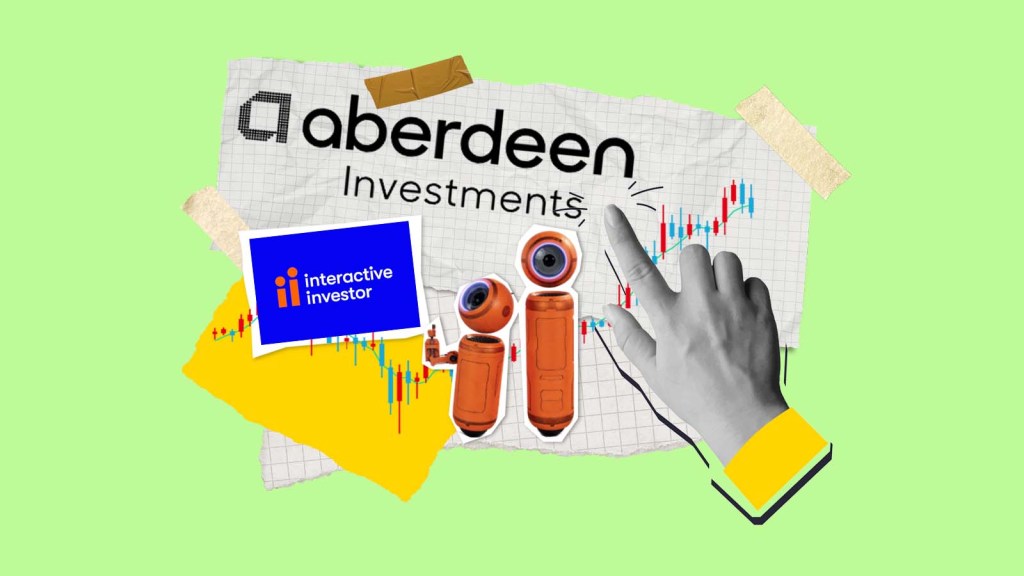Is Now the Right Time to Invest in Aberdeen Shares?
Aberdeen has consistently been a blue-chip company that faces skepticism from the market. Concerns have loomed since the 2017 combination of Standard Life and Aberdeen Asset Management, which resulted in the current entity.
Persistent client withdrawals, mixed stock-picking results, cultural clashes, and management issues have contributed to this negative outlook, coupled with a broader trend of investors shifting from active managers to passive index funds. Currently, eight out of fourteen analysts maintain a ‘sell’ recommendation for the company based on data from FactSet.
The company faced ridicule over its rebranding to Abrdn, which was later reversed—a situation other companies might have weathered, but Aberdeen’s challenges were too significant.
Now, with Jason Windsor, former chief at Aviva, at the helm, could it be time to reassess the company’s potential?
Goldman Sachs analysts have recently shifted their stance on Aberdeen, upgrading their outlook from ‘neutral’ to ‘buy’. This change largely stems from the untapped potential of Interactive Investor, Aberdeen’s investment platform that has not received the recognition it deserves.
Interactive Investor caters to individual investors who manage their own stock and fund selections, experiencing notable growth in both customer numbers and trading activities, supported by favorable demographic trends and government policies.
Just four years ago, former Aberdeen CEO Stephen Bird was criticized for purchasing Interactive Investor for £1.49 billion. Today, this platform is increasingly viewed as a critical driver for the company’s future expansion.
Per Goldman’s forecasts, Interactive Investor is expected to account for 46% of the group’s operating profits this year, yet it has remained somewhat underappreciated. This could change with an analyst presentation on June 26, aimed at showcasing the platform’s strengths.
Such presentations can often lead to a more optimistic view of the entire company. The Interactive Investor team is developing several innovations, including a sophisticated platform for advanced investors, an easy-to-use self-invested personal pension (SIPP) for beginners, and a cost-effective hybrid advice service that integrates AI with human oversight.
In the first quarter, Interactive Investor reported a 9% year-over-year increase in customer accounts, reaching 450,000, with SIPP accounts growing by 29% to 88,000. The platform also attracted net inflows of £1.6 billion.
The combination of an aging demographic and government encouragement for riskier stock market investments bodes well for the DIY investment sector. With a Trustpilot rating of 4.7 out of 5, Interactive Investor seems well-positioned to capitalize on these trends, especially among wealthier clients with larger investments.
However, a significant competitor remains in the space: Hargreaves Lansdown, which holds a 4.3 out of 5 rating. With new backing from Abu Dhabi and private equity firm CVC, it is unlikely to remain passive as its market share diminishes. Moreover, A J Bell continues to excel in customer service, maintaining a leading 4.9 out of 5 rating.
The second largest division of the fund manager, Aberdeen Adviser—designed for financial advisors—could see a turnaround after initial struggles caused by an IT overhaul that disrupted customer relations. After improving pricing and addressing service issues, such as call handling, the division reported its best month in two years as of April, with Windsor optimistic about achieving £1 billion in net inflows by 2026.
This leaves the core asset management division, now the smallest in operating profit but the largest in assets, as a lingering concern. Although customer withdrawals persisted this last quarter, investment performance has improved, and Windsor is actively reducing costs. Aberdeen still has a solid customer base in certain asset classes like credit, specialist equities, and real assets such as property.
With stronger prospects across two divisions, it won’t take much for Aberdeen to shift perceptions in the market. As a firm managing half a trillion pounds, value certainly exists here. Additionally, with strong capitalization, a 7.9% yield might comfort investors willing to wait.
Conclusion: Consider Buying
Reason: Long-neglected shares may be poised for a revival among investors.




Post Comment